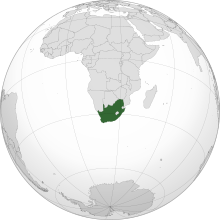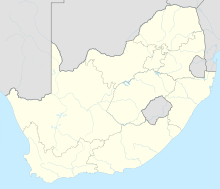**Historical Development**:
– South Africa’s etymology and historical background.
– Prehistoric archaeology and the presence of various hominid species.
– Bantu expansion and the impact of Portuguese exploration.
– Dutch colonization and British influence.
– Boer Wars, independence movements, and the apartheid era.
**Post-Apartheid Era**:
– Transition from apartheid to post-apartheid.
– Economic challenges and social issues post-apartheid.
– Efforts towards reconciliation and addressing racial tensions.
– Current racial issues, xenophobia, and ongoing challenges.
– Socioeconomic challenges, including unemployment and poverty.
**Geography and Climate**:
– South Africa’s geographical location and diverse landscape.
– Climate variations across different regions.
– Various climatic zones in South Africa.
– Temperature extremes and climate change impacts.
– Biodiversity, conservation challenges, and ecotourism.
**Economic Challenges and Governance**:
– Economic challenges facing South Africa.
– Risks of state collapse and warnings of a failed state.
– Impact of corruption, unemployment, and failing infrastructure.
– Government-owned enterprises and unsustainable spending.
– Urgent need for reforms and effective governance.
**Social Issues and Environmental Concerns**:
– High crime rates and social unrest.
– Inner-city collapse and government failures.
– Concerns about South Africa becoming a failed state.
– Conservation challenges, loss of natural habitat, and invasive species.
– Efforts towards addressing environmental issues and promoting biodiversity.
South Africa, officially the Republic of South Africa (RSA or R.S.A.), is the southernmost country in Africa. It is bounded to the south by 2,798 kilometres (1,739 mi) of coastline that stretches along the South Atlantic and Indian Oceans; to the north by the neighbouring countries of Namibia, Botswana, and Zimbabwe; and to the east and northeast by Mozambique and Eswatini. It also completely enclaves Lesotho. It is the southernmost country on the mainland of the Old World, and the second-most populous country located entirely south of the equator, after Tanzania. South Africa is a biodiversity hotspot, with unique biomes, plant and animal life. With over 62 million people, the country is the world's 23rd-most populous nation and covers an area of 1,221,037 square kilometres (471,445 square miles). Pretoria is the administrative capital, while Cape Town, as the seat of Parliament, is the legislative capital. Bloemfontein has traditionally been regarded as the judicial capital. While the Constitutional Court, the country's highest court, is located in Johannesburg.
Republic of South Africa 10 other official names
| |||||||||||||||||||||
|---|---|---|---|---|---|---|---|---|---|---|---|---|---|---|---|---|---|---|---|---|---|
| Motto: "ǃke e: ǀxarra ǁke" (ǀXam) "Unity in diversity" | |||||||||||||||||||||
| Anthem: "National anthem of South Africa" | |||||||||||||||||||||
| Capital |
| ||||||||||||||||||||
| Largest city | Johannesburg | ||||||||||||||||||||
| Official languages | 12 languages Languages with special status | ||||||||||||||||||||
| Ethnic groups (2022) |
| ||||||||||||||||||||
| Religion (2016) |
| ||||||||||||||||||||
| Demonym(s) | |||||||||||||||||||||
| Government | Unitary parliamentary republic with an executive presidency | ||||||||||||||||||||
| Cyril Ramaphosa | |||||||||||||||||||||
| Paul Mashatile | |||||||||||||||||||||
| Amos Masondo | |||||||||||||||||||||
| Vacant | |||||||||||||||||||||
| Raymond Zondo | |||||||||||||||||||||
| Legislature | Parliament | ||||||||||||||||||||
| National Council | |||||||||||||||||||||
| National Assembly | |||||||||||||||||||||
| Independence from the United Kingdom | |||||||||||||||||||||
• Union | 31 May 1910 | ||||||||||||||||||||
| 11 December 1931 | |||||||||||||||||||||
• Republic | 31 May 1961 | ||||||||||||||||||||
| 4 February 1997 | |||||||||||||||||||||
| Area | |||||||||||||||||||||
• Total | 1,221,037 km2 (471,445 sq mi) (24th) | ||||||||||||||||||||
• Water (%) | 0.380 | ||||||||||||||||||||
| Population | |||||||||||||||||||||
• 2022 census | 62,027,503 (23rd) | ||||||||||||||||||||
• Density | 50.8/km2 (131.6/sq mi) (169th) | ||||||||||||||||||||
| GDP (PPP) | 2024 estimate | ||||||||||||||||||||
• Total | |||||||||||||||||||||
• Per capita | |||||||||||||||||||||
| GDP (nominal) | 2024 estimate | ||||||||||||||||||||
• Total | |||||||||||||||||||||
• Per capita | |||||||||||||||||||||
| Gini (2014) | very high | ||||||||||||||||||||
| HDI (2022) | high (110th) | ||||||||||||||||||||
| Currency | South African rand (ZAR) | ||||||||||||||||||||
| Time zone | UTC+2 (SAST) | ||||||||||||||||||||
| Date format | Short formats:
| ||||||||||||||||||||
| Driving side | left | ||||||||||||||||||||
| Calling code | +27 | ||||||||||||||||||||
| ISO 3166 code | ZA | ||||||||||||||||||||
| Internet TLD | .za | ||||||||||||||||||||
About 80% of the population are Black South Africans. The remaining population consists of Africa's largest communities of European (White South Africans), Asian (Indian South Africans and Chinese South Africans), and multiracial (Coloured South Africans) ancestry. South Africa is a multiethnic society encompassing a wide variety of cultures, languages, and religions. Its pluralistic makeup is reflected in the constitution's recognition of 12 official languages, the fourth-highest number in the world. According to the 2011 census, the two most spoken first languages are Zulu (22.7%) and Xhosa (16.0%). The next two are of European origin: Afrikaans (13.5%) developed from Dutch and serves as the first language of most Coloured and White South Africans; English (9.6%) is commonly used in public and commercial life, both reflecting the legacy of Dutch and British colonialism, respectively.
Regular elections have been held for almost a century in the country. However, the vast majority of Black South Africans were not enfranchised until 1994. During the 20th century, the black majority sought to claim more rights from the dominant white minority, which played a large role in the country's recent history and politics. The National Party imposed apartheid in 1948, institutionalising previous racial segregation. After a largely non-violent struggle by the African National Congress and other anti-apartheid activists both inside and outside the country, the repeal of discriminatory laws began in the mid-1980s. Since 1994, all ethnic and linguistic groups have held political representation in the country's liberal democracy, which comprises a parliamentary republic and nine provinces. South Africa is often referred to as the "rainbow nation" to describe the country's multicultural diversity, especially in the wake of apartheid. According to the 2023 V-Dem Democracy indices, South Africa is ranked the 51st electoral democracy worldwide and the 3rd electoral democracy in Africa.
South Africa is a middle power (regional superpower) in international affairs; it maintains significant regional influence and is a member of both the Commonwealth of Nations and the G20. It is a developing country, ranking 109th on the Human Development Index, the 7th highest on the continent. South Africa is the only African nation to legislate same-sex marriage. It has been classified by the World Bank as a newly industrialised country and has the third-largest economy and the most industrialised, technologically advanced economy in Africa overall, as well as the 41st-largest economy in the world. South Africa has the most UNESCO World Heritage Sites in Africa. Since the end of apartheid, government accountability and quality of life have substantially improved. However, crime, poverty, and inequality remain widespread, with about 40% of the total population being unemployed as of 2021[update], while some 60% of the population lived below the poverty line and a quarter lived below $2.15 a day. Having the highest Gini coefficient of 63.0, South Africa is considered to be one of, if not the most, unequal countries in the world.




